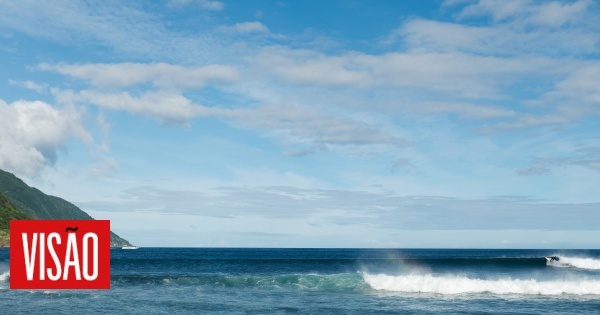Tiago Pitta e Cunha, who has been working for two decades in the field of ocean policy and director of the foundation created in 2017 dedicated to the protection of the oceans, defends the strategic importance of the oceans for Portugal, from the exploitation of biological resources such as algae and bivalves, which are the raw materials of the future, Even the exploitation of wind energy “offshore” and marine transport.
The specialist says that Portugal must have a strategy and plan to explore its “blue economy”, but also invest in marine protected areas, to conserve the remaining biodiversity, a relevant area of work for the Oceano Azul Foundation and the main theme of the project: the United Nations Conference on the Ocean, which Organized by Portugal with Kenya which will take place in Lisbon between 27 June and 1 July.
Tiago Pitta e Cunha recalls the Foundation’s support in creating the largest marine protected area in Europe, in the Selvagens Islands and the proposal to create a marine park in the Algarve and participate in the creation of new marine protected areas in the Azores.
“The Oceano Azul Foundation hasn’t waited for governments to start trying to enhance these processes to create marine protected areas,” says Peta e Cunha, who believes it’s doing the right thing to help ocean health, so governments from the planet are doing it too, starting with Portugal, Which you must understand can become a very important country from an economic point of view. The foundation has argued that the blue bio-economy will play a critical role in responding to some of the world’s challenges, even creating the Program (“Blue Bio Value”), a business accelerator for blue biotech startups.
The official also believes that it is possible for Portugal to reach the end of the decade as a naval power like Norway.
with a difference. If Norway is a maritime powerhouse in fisheries, aquaculture, oil and natural gas, Portugal can be a force for “the new paradigm of the twenty-first century economy, the economy of the environment and nature conservation as part of the economy”.
“We have huge potential in energy from the sea, we have huge potential in offshore winds and we have the ability to combine the two,” because the platforms on which the wind turbines are placed can be used for aquaculture and algae projects.
These dual-purpose turbines will allow Portugal to become a producer and exporter of energy while at the same time creating so much protein from algae and bivalves that the country can, in the future, become “the real breadbasket of subsea Europe,” he says.
“Why not move towards these solutions and why not use biotechnology?” , the specialist asks, noting that the turbines will generate unpolluted power and that bivalves and algae will help deacidify the oceans by removing carbon, “because 40% of the bivalve mantle is carbon.”
And offshore power generation, Peta-e-Kona says, has another advantage, which is getting closer to consumers. Because wind farms 15 kilometers from the coast will be close to consumers who mostly live along the coast.
“We have to start thinking in these terms and we have to start moving from strategies to concrete plans, developing these areas to try to become what’s called a twenty-first century powerhouse,” he says, including biotech in these strategies, which goes, he says. “To make a great revolution, not only in economic terms, but in the way we use the planet’s natural resources.”
Tiago Pitta e Cunha admits that there is still a lot to do to change mentalities in Portugal, including recycling or reducing waste production.
That is why in 2019 the Foundation created the “Education for the Blue Generation” program in schools, which includes a handbook, which, by the end of last year, had already included about 17,000 students.
Another project of the foundation, more practical, brings together organizations that collect garbage on the beaches. Pitta e Cunha believes that whoever picks up litter on the beach will never throw litter on the beach, but adds: “What is strange is that there are still people who leave litter on the beaches.”
Pitta e Cunha states that most of the environmental legislation in place in Portugal comes from Brussels and not from the Assembly of the Republic, and that if Portugal were not a member of the European Union “it would be in prehistoric times of environmental sustainability”.
“What we really need is for everyone to pay more attention to these issues, but starting with decision makers, political decision makers and also economic decision makers, who should strive in the context of their social responsibility to lead their employees to understand these things.”
Tiago Pitta e Cunha hopes that the Ocean Conference will be somewhat helpful in this matter to raise awareness among the Portuguese, because Portugal’s environmental responsibility rates are “too low”, and says that the country needs, in this area, to “put the change below and accelerate downwards.” “.
FP // JMR

“Hardcore beer fanatic. Falls down a lot. Professional coffee fan. Music ninja.”






More Stories
The law allows children and adolescents to visit parents in the hospital.
Scientists pave the way for the emergence of a new element in the periodic table | World and Science
Can dengue cause hair loss? Expert explains how the disease affects hair